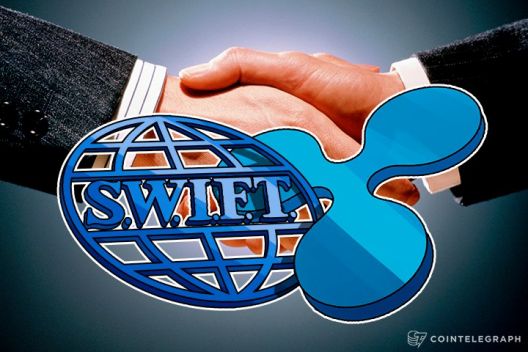What Happened to the Financial Blockchain Revolution?

Major Banks Launch Global Payments Steering Group – Group members unite to create the first rules-based blockchain payments network
September 26, 2016Once upon a time, there was a lot of optimism that the blockchain — the technology underlying Bitcoin — would help the finance industry deal with a big headache: post-trade processing, the often long and arduous task of making sure money and securities change hands and everybody knows who owes what to whom.
The problem might yet get solved, but it probably won’t come as a revolution.
The industry’s main effort to bend the technology to its will — the R3 consortium — recently saw the departure of several banks, including founding members Goldman Sachs and Banco Santander, and reportedly reduced its fundraising target. Charley Cooper, managing director of R3, explained that initial expectations were unreasonably high, blaming the “hype cycle” on tech firms and their dreams of disruption.
Now, R3 has unveiled its new platform: Corda, a decentralized database that does not use a blockchain, as its technical white paperspecifically points out. In a blog post, R3 architecture consultant Ian Grigg argues that Corda will become a formidable opponent to the two most popular blockchain technologies, Bitcoin and Ethereum, because it is the only solution that “asked the users what they want.”
Okay, so the problem this whole time was that Bitcoin’s anonymous creator neglected to ask financial institutions what they wanted? Bitcoin was created as an alternative to banks, not a solution for them. By contrast, plenty of blockchain-inspired ventures — such as Digital Asset Holdings, Blockchain Insurance Industry Initiative, and Japan Exchange Group— have focused precisely on figuring out what financial customers want.
It turns out that using blockchain terminology is a good way to get customers interested. Corda, for example, offers oracles and notariesand smart contracts — features that in existing systems have boring names such as data feeds, central counterparties and automated reconciliation tools.
Post-trade processing is a multi-billion dollar industry, and it would be silly to think that financial technology providers somehow overlooked this opportunity for years. There are plenty of enterprise software vendors angling to serve this market, and financial institutions aren’t suffering from a lack of technology so much as an excess of complexity.
Consider the market for syndicated loans, often cited as low-hanging fruit for blockchain disruption due to the lack of a central clearing authority and settlement times that can often exceed 20 days. Despite the fact that automated settlement technology is already available, the largest participants have yet to integrate their systems with the new platforms.
Regulation is one complicating factor. Reforms since the financial crisis have forced banks to rush infrastructure changes, leading to fragmentation of market practice and potential fragility. As a recent ISDA whitepaper puts it:
The sheer pace of regulatory implementation and a limited capacity, both human and financial, to take stock, re-engineer and implement changes have caused many market participants to build tactical solutions to their immediate problems. This is not sustainable and, in addition to being costly, there is a nervousness that the resulting ecosystem is not sufficiently robust to support the industry in times of stress.
What a mess. In theory, distributed ledger technology could streamline the entire transaction process, from pre-trade to execution to regulatory reporting. But how do you accomplish such a rollout without bulldozing everything to the ground? It’s really hard to retire legacy infrastructure without disrupting the delicately balanced systems that have been evolving for decades.
It’s tempting to imagine that technology alone can revolutionize the banking industry. After all, decentralized blockchains like Bitcoin and Ethereum seem to replicate global financial infrastructure with ease. Yet such self-governing structures work in part because they don’t have to be shoehorned into existing bureaucracies. Hence, all the blockchain hype might ultimately do little more than pressure financial institutions into meaningful collaboration. Change will probably be slow and cautious, but in this industry that’s considered a good thing.
This column does not necessarily reflect the opinion of the editorial board or Bloomberg LP and its owners.
To contact the author of this story:
Elaine Ou at elaine@globalfinancialaccess.com
To contact the editor responsible for this story:
Mark Whitehouse at mwhitehouse1@bloomberg.net


